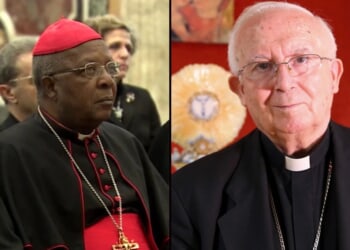John Moss is a Campaign Manager at College Green Group and helps people get elected. He is Sir Iain Duncan Smith’s constituency association chairman.
With the acceleration of the move to elected mayors for combined authority areas under Labour’s plans for reorganising local government, it looks highly likely that the first outing for the Conservative Party’s new candidate approval and selection process will be to choose six candidates to stand in Cumbria, Cheshire & Warrington, Norfolk & Suffolk, Essex, Sussex and Hampshire.
The selection process is likely to give prospective candidates more opportunity to engage with the membership of the party across these areas, before they vote, but before getting to that stage, there is the not-so-small matter of being approved to stand.
Anyone who has attended the various regional conferences, the CCA conference and the most recent National Convention meeting will be in no doubt that there is a very strong demand from the voluntary party that no-one gets to be a Conservative candidate for anything without them undergoing some form of prior assessment, and that this assessment includes a robust evaluation of their Conservative values. A “Tory Test”, if you will.
And it is very clear that demand extends to former MPs and existing police and crime commissioners, several of whom have already declared their interest in being candidates.
So “getting on the approved list” does appear likely to be a pre-requisite for anyone seeking to be a mayoral candidate in May 2026. With one year only before those elections, it seems highly likely that this will be one of the first things in the proverbial in-tray of the newly appointed Chair of the Candidates Committee
What might a revised assessment look like? In truth we do not know. We do know what the process was in the last parliament, and it would seem likely that this will form the basis of any future approval process. The core of the assessment looks at your suitability for the role of an elected representative, but the content of the process may well change, not least to include that “Tory Test”.
For those seeking to be MPs, this would be your ability to do the job in Westminster, in the constituency and to be the most important activist in your local Party. It is your name on the ballot paper after all!
For mayors, this might be subtly different. The role of a combined authority mayor is very much one of leadership. You are the figurehead of your region, charged with getting the big stuff done.
You will need to demonstrate that you have an understanding of the specific responsibilities and show that you have experiences and skills relevant to them. You will need to tell stories about yourself which show that you have done things equivalent or at least analogous to what will be required of new mayors.
Then there is the soft power that a mayor exercises. Convening disparate groups and opposing politicians to develop solutions to problems affecting the region. Being willing to compromise but always looking to move forward. The four-way collaboration test from the old PAB writ large!
As most association officers know, finding good people to be candidates for all the elections we fight can be a challenge. Being mayor for an area with as many as 1.5 million electors and an even greater population is a huge responsibility and finding great people to put themselves forward is perhaps more of a struggle.
But amongst those who were or sought to be MPs are some extraordinary people who would make great leaders; being mayor of one of the new combined authority areas might be their route to serve.
When helping clients prepare for their parliamentary assessments, I spent a lot of time digging into their life experiences and helping them to link what they had done to the core elements of being an MP. With mayors having responsibilities which are clearly defined – spatial planning, transport, housing and, eventually policing and crime – prospective candidates may need help with research into these areas to help them make those links.
There will also be specifics about combined authority areas which you might need to think about.
Did you know, for example, that the six areas which are slated to have these elections have three different local government structures below them, and may or may not have local government reorganisations going on at the same time? What does that mean for the elections that could be happening at the same time as the mayoral elections?
More importantly, what do the local members think about this, and can you present your own views, when you are inevitably asked about them, in a way which doesn’t split the room?
Finally, should the party follow the example of the Liberal Democrats and Labour and give short-listed candidates much better access to their electorate before the final vote, how will you reach out to the members and engage with them to get them out to vote? Across a combined authority with over a million electors, the Conservative membership will be in the thousands. That’s quite a GOTV campaign for an individual.
Despite not knowing yet quite what the process will be, anyone thinking of putting their hat in the ring for one of these six positions should be thinking about these things now.





![Fans Shocked as Katy Perry Stops Concert After She’s Ambushed by Deranged Fan Onstage [WATCH]](https://www.right2024.com/wp-content/uploads/2025/06/Fans-Shocked-as-Katy-Perry-Stops-Concert-After-Shes-Ambushed-350x250.jpg)
![LA Protest Casualty? Dead Body Found as Riots Stretch Into Fifth Night [WATCH]](https://www.right2024.com/wp-content/uploads/2025/06/1749642627_LA-Protest-Casualty-Dead-Body-Found-as-Riots-Stretch-Into-350x250.jpg)



![Soros Network, Others Behind LA Riots [WATCH]](https://www.right2024.com/wp-content/uploads/2025/06/Soros-Network-Others-Behind-LA-Riots-WATCH-350x250.jpg)






